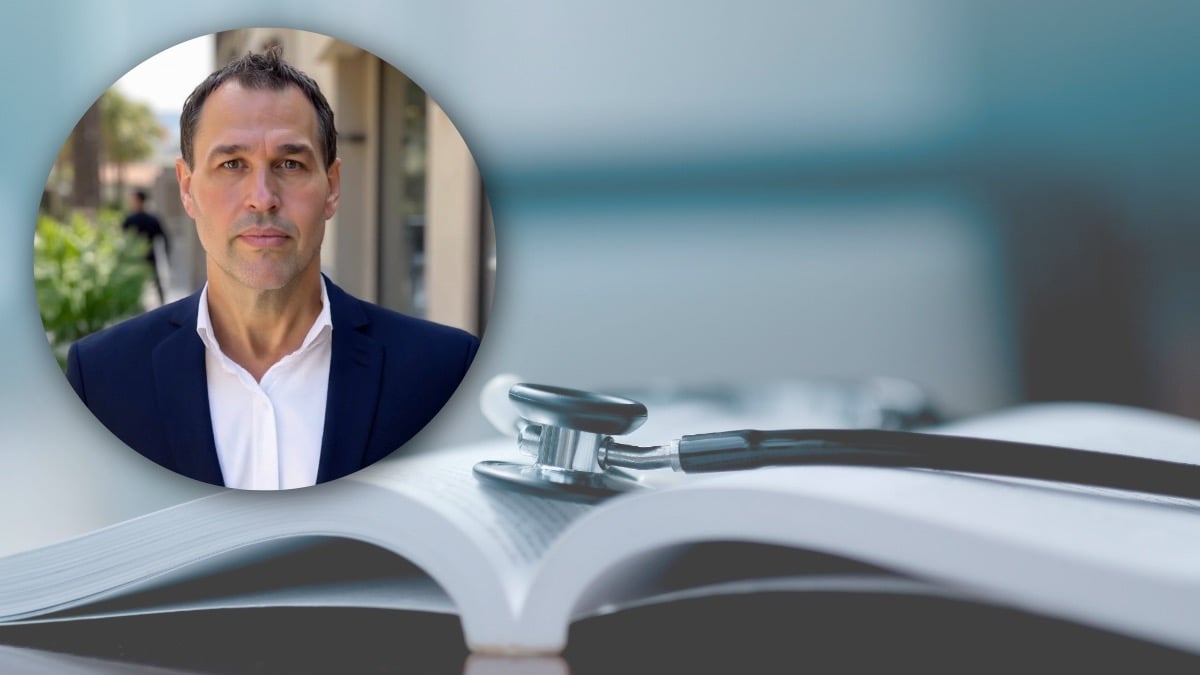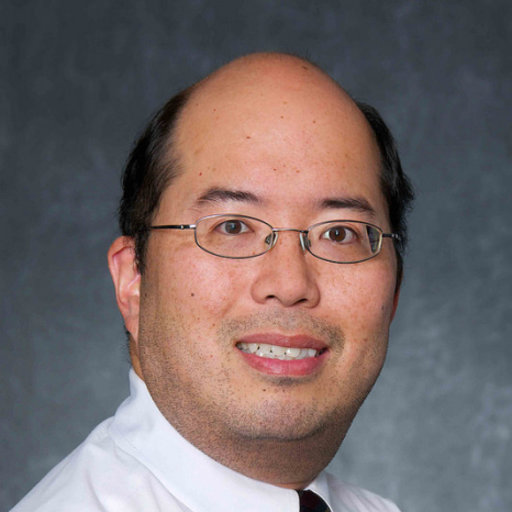Last Updated on April 9, 2025 by Laura Turner
Samuel Dyer, MD, PhD has worked for over 25 years as a Medical Science Liaison (MSL), leading MSL teams and field medical operations in more than 60 countries. His career has included a variety of leadership roles within the pharmaceutical and biotech industries, focused on strategic scientific engagements that directly influence clinical decisions and improve patient outcomes. A passionate advocate for the MSL career path, he has served as the CEO of the Medical Science Liaison Society for over 15 years. Recently, he completed his interrupted medical school education. He spoke with SDN about his unusual career journey and the MSL career path.
Your journey in medicine began 31 years ago, but life took you in a different direction. Can you take us back to when you first started medical school and what led to you leaving?
Samuel Dyer, MD, PhD: Thirty-one years ago, I started medical school with the goal of becoming a physician. However, due to financial hardship and a family tragedy (my mother’s illness and eventual passing), I was forced to quit. At the time, I was still young and not certain of my career path. However, I knew I wanted to contribute to healthcare, but I did not know exactly what that would be.
Leaving medical school was a very difficult and painful decision. It was not just about stepping away from a degree, it was walking away from a dream I had worked so hard for. But given the circumstances, I had no choice.
After building an accomplished career, earning multiple degrees, and becoming a leader in the pharmaceutical industry, what was it about not finishing medical school that continued to bother you?
Since leaving medical school, I have earned a Master’s degree in Biology from Southern Illinois University Edwardsville and a PhD in Health Science from Touro University. I have also written an Amazon #1 best-selling book and had a successful career in the pharmaceutical industry. But even with all the professional and academic success I have achieved, not earning my MD has always bothered me.
Even though I had earned multiple degrees and built a successful career in Medical Affairs in the pharmaceutical industry, there was always this gnawing feeling of unfinished business. Regardless of how much I had accomplished, not finishing my MD remained a regret.
While my career allowed me to work closely with physicians and contribute to medical advancements, I never let go of the feeling that I wanted to finish the MD degree. The challenge was not about needing the degree to advance my career, it was about personal fulfillment. I did not want to look back the rest of my life and wonder, “What if?”
You returned to medical school 31 years after first enrolling, a feat very few have accomplished. What made you decide to take this leap, and how did the COVID-19 pandemic play a role?
I have always been very driven and persistent. I have always believed that if you want something, put your head down, go to work, and go get it. But going back to medical school after 31 years? That was something I never thought would be possible. Then, the COVID-19 pandemic changed everything.
For medical schools, the pandemic meant an immediate shift to virtual instruction, something that had never happened before. I quickly realized that the possibility of attending medical school virtually was a once-in-a-lifetime opportunity. The dream of finishing the degree that had once seemed completely unrealistic suddenly seemed possible.
I knew it was a huge risk. Could I do this after so many years? Would I be able to balance it with my responsibilities? Would it even be worth it? Frankly, I was afraid I could not do it.
But my persistence would not let me walk away from this opportunity. So, I made a very deliberate decision. I did not tell anyone I went back except my wife and one close friend. I did not tell anyone else, including friends or family, until I started clinical rotations when I knew I would make it.
Going back was hard. I had to start all over again from day one. I was not given any credit for previous coursework because it had been too long. It meant redoing the basic sciences and pushing through years of intense study. But once I made the commitment, I never looked back.
From the time I applied to medical school the second time and throughout each clinical rotation, I explained to every single physician prior to starting each rotation that I had no intention of ever practicing medicine. My motivation for returning to medical school was entirely for the satisfaction of finishing it.
Non-Traditional Career Paths for Physicians
Every career path is different, but becoming a physician opens doors to many roles beyond a traditional clinical practice. Check out these articles for different ways you can doctor:
Medical school is already difficult for students in their 20s. What were the biggest challenges of completing your MD later in life while also leading the Medical Science Liaison Society?
Medical school was brutal, as expected! Those four years were a stressful, relentless, never-ending grind. Dedicating countless hours to studying and 76 weeks of clinical rotations while also leading the MSL Society, managing multiple MSL training programs, and extensive travel made this an incredibly difficult balancing act.
One of the craziest moments that illustrates this balancing act is when I had to take my final exam of the basic sciences while floating on a cruise ship in Antarctica. I was so worried the Wi-Fi on the boat would crash and I would not be able to complete the exam. But that was the reality of my schedule. I had to make everything work, regardless of where I was.
Since my role with the MSL Society involves international travel, I had to coordinate my clinical rotations carefully as well. Prior to committing to a site, I would explain my responsibilities and ensure the physicians were comfortable and agreed with the flexibility I needed. Many were incredibly understanding, knowing that I was not a typical medical student.
Despite the challenges, I graduated from Washington University (Health and Science) School of Medicine in August of 2024 at 51 years old with Distinguished Honors, placing in the top 5% of my class. I was also selected as one of two graduating students to deliver part of the commencement address.
Despite earning your MD, you have been clear that you never planned to practice medicine.
I love my job and career with the Medical Science Liaison Society. As a result, I have no intention nor desire to ever practice medicine.
What drove me was pure self-satisfaction. This was never about changing careers or becoming a practicing physician; it was about knowing I made it, regardless of how long it took, how difficult it was, or my age.
Walking across that stage at graduation was not about a new job or career direction, it was about finally finishing what I started 31 years ago.
You completed some remarkable clinical rotations during medical school. What were some of the most memorable ones, and what did you learn from them?
I had the opportunity to complete some incredible rotations, and each one gave me unique insights into different aspects of medicine:
- 12-Week Surgery Rotation at Harvard Medical School: This was an intense, high-pressure experience that reinforced just how demanding a surgical career is. I gained an even greater respect for surgeons and their precision, endurance, and technical skill. One of the awesome outcomes of this rotation is I have built a great relationship with the physician I rotated with (who is the head of the department) and we are working on a systematic review that will be submitted for publication soon.
- 2-Week Wilderness Medicine Rotation in Switzerland (University of Utah School of Medicine): This rotation was one of the most exciting and hands-on experiences I had. I trained in remote medical scenarios, survival-based medicine, and emergency response in extreme environments. It was not like anything else I had done in (or outside) of medical school.
- 10-Week Sports Medicine Rotation with the Miami Dolphins: This experience gave me a behind-the-scenes look at how elite athletes are treated, rehabilitated, and prepared for competition. It was fascinating meeting the players and seeing how medical teams work to prevent injuries and optimize performance at the highest levels of professional sports.
Each rotation reinforced how diverse medicine is. While I never intend to practice medicine, I gained a greater appreciation for various specialties and the physicians dedicated to them.
Any Final Advice you would offer?
Yes! For over 25 years, I have a quote that has driven me and has been so important that I included it in my Master’s thesis, my PhD dissertation, both editions of The MSL Career Guide, and The MSL Interview Journal. It has also been framed in my office for 25 years.
“The difference between a successful person and others is not a lack of strength, not a lack of knowledge, but merely a lack of will.”
This message of persistence and willpower has defined my journey. No matter how many obstacles I faced, I refused to let them get in the way.
My journey proves that no matter how much time passes, no matter how impossible a goal seems, it is never too late to finish what you started.
No matter how long it takes…NEVER GIVE UP!


